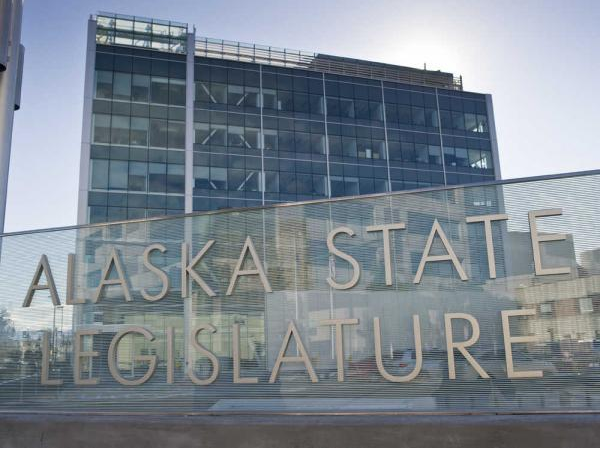The owners of the controversial downtown Anchorage Legislative Information Office Building have filed a claim seeking $37 million from the state of Alaska.
In the claim, dated July 8 and addressed to Sen. Gary Stevens, R-Kodiak and chairman of the Legislative Council, the owners of the building say the state is liable for the millions they spent on renovating the building for the needs of the Alaska Legislature.
The Legislative Council makes purchasing decisions for the Legislature while it is out of session, and the previous chairman of the council (Rep. Mike Hawker, R-Anchorage) negotiated a 10-year lease of the building with 716 West Fourth Avenue LLC, the corporation formed to operate the building.
The lease for the 60,000 square-foot building was $3.4 million per year.
The Legislature had leased the building for almost two decades, and the 2015 agreement was deemed an extension to an existing lease, not a new lease, even though the Legislature paid about $7.5 million in “tenant improvement costs” to gut and upgrade the building. The new cost per year was five times the pre-renovation cost.
The resulting price caused the building to be deemed the “Taj MaHawker” by critics who scorned Hawker’s close relationship with developer Mark Pfeffer, one of the people behind 716 West Fourth Avenue LLC. Hawker negotiated the state’s lease with Pfeffer, who owns the building.
Jim Gottstein, owner of the adjacent Alaska Building, sued, alleging the lease was illegal and violated the state’s contracting rules.
Anchorage Superior Court justice Patrick McKay agreed. In March, he ruled in favor of the plaintiffs, saying in part, “the court finds that this contract is not an agreement to extend a lease but rather a wholly new lease instrument altogether and should have been competitively bid.”
In its message to Stevens, 716 West Fourth states, “Under Alaska law, despite the court’s order, the Legislature cannot impose the entire cost and burden of its flawed procurement process … on 716’s shoulders. Public policy and the need for the public to have faith in the State’s contracting obligations require that the Legislature bear the cost and consequences of its decision to abandon the LIO building.”
The July 8 filing is not a lawsuit, but an administrative appeal through the state’s contracting process.
“I don’t see why it would (come to a lawsuit),” Stevens said on Monday morning, “but it could.”
If that happens, “we’re perfectly prepared to defend ourselves in court,” he said.
Stevens said an agreement with Wells Fargo for an alternative office building in Spenard is “imminent” and will be signed “in the next week or so.”
If the Legislature purchases that building, it will give three months’ advance notice of a move out of its downtown building, something required in the now-void lease.

